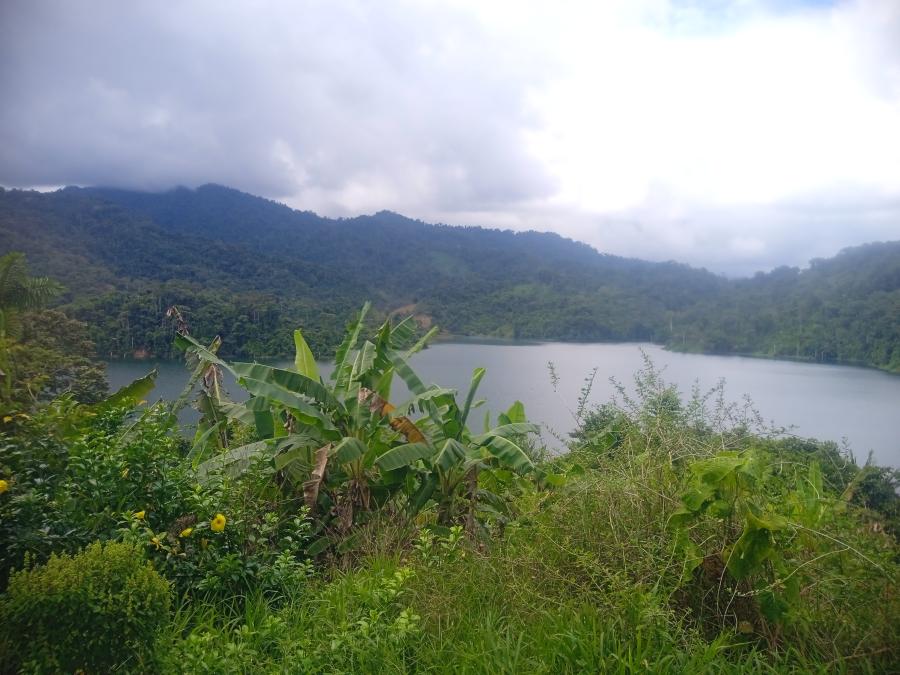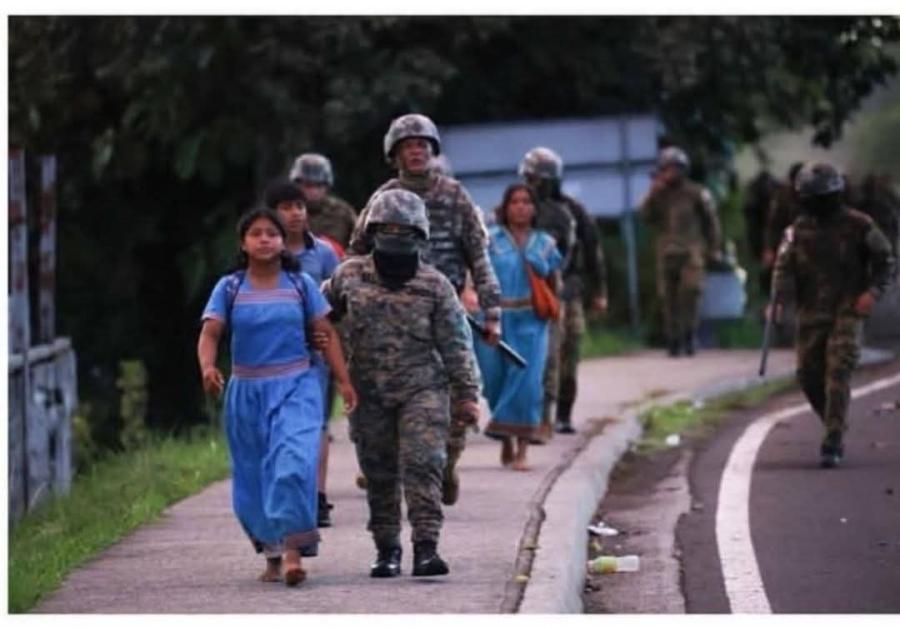
A delegation of Indigenous representatives and human rights specialists will be traveling to Washington D. C. this week for a hearing at the Inter-American Commission on Human Rights. They will present on the rights of Indigenous peoples to collective property, and how their lives have been affected because the Panama government does not recognize their collective lands.
The delegation includes Ngöbe leaders Adelaida Miranda from the Tabasará River, Pedro Abrego from the Changuinola District, and Feliciano Santos from the Bocas del Toro Archipelago, and Leonides Quiroz, a Wounaan lawyer from Eastern Panama.

See the following press release from the Rainforest Foundation:
Four representatives from the Ngäbe and Wounaan peoples will participate in a hearing at the Inter-American Commission on Human Rights on March 23, 2012.
Washington, DC: A delegation of indigenous representatives and human rights specialists from Panama will be in Washington DC to participate in a hearing before the Inter-American Commission on Human Rights (IACHR) this Friday, March 23, 2012. The delegation includes Ngobe leaders Adelaida Miranda from the Tabasará River, Pedro Abrego from the Changuinola District and Feliciano Santos from the Bocas del Toro Archipelago, all in Western Panama, and Leonides Quiroz, a Wounaan lawyer from Eastern Panama.
Although Panama has enjoyed a good international reputation due to its recognition of comarcas, or semi-autonomous indigenous territories, over fifty indigenous communities across the country do not yet have any recognition of their traditional lands. This situation has led to invasions by settlers, ranchers, and loggers, resulting in environmental degradation and sometimes violent clashes. It is further compounded because even communities who do have their lands recognized remain vulnerable to invasions by outsiders, with no protection from the State. Mining projects and hydroelectric dams that will affect indigenous lands are being planned with no consultation with the affected communities. A number of laws protecting indigenous lands and natural resources have been repealed, including those obligating the state to obtain free, prior and informed consent prior to carrying out infrastructure development projects affecting indigenous peoples.
During the hearing, the four indigenous representatives from different parts of Panama will have the opportunity to express how their lives have been affected by Panama’s lack of recognition of their collective lands. They will also discuss how this has impacted the rights of Panama’s indigenous peoples – the Bribri, Naso, Ngäbe, Bukle, Kuna, Emberá and Wounaan - to a healthy and ecologically balanced environment, to health, family, and traditional culture. According to Adelaida Miranda, a Ngäbe woman who will be participating in the hearing: "The Government always talks about security – but where is ours? We're going to run out of water ... they do not want to accept that we are living beings."
Although indigenous leaders have sought dialogue with the Panamanian government, history has shown a recurring lack of willingness on the part of the authorities. A clear example of this includes the failure to implement the 1976 Farallon Agreement on the construction of the Bayano Hydroelectric Dam – which itself is the subject of a hearing at the IACHR scheduled on March 23rd (Case 12.354 – Kuna of Mandungandí and Emberá of Bayano Peoples). Other examples include the lack of implementation of Law 10 that created the Ngobe-Bugle Comarca in 1997, and the very recent failure of the 2011 San Felix Accords. As a result of these failures and the lack of respect of their rights, indigenous peoples in Panama fear that their demands and mobilizations will be responded to violently. Indeed, this occurred just this past February, during Ngäbe protests against mining; official sources report two deaths and dozens of injuries, as well as sexual assaults committed by the National Police.
The hearing at the IACHR will serve to provide the Commission with written materials documenting the situation in Panama. The participants will request the IACHR to issue recommendations to the state in its annual report, and to publish a special report on the right to collective lands by indigenous peoples in Panama.


